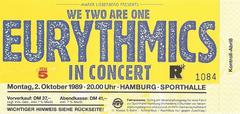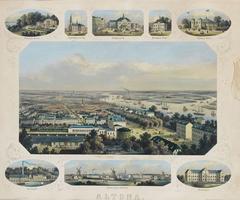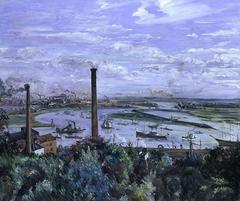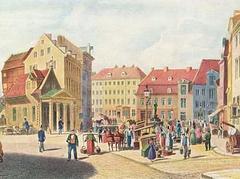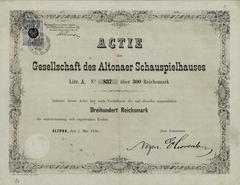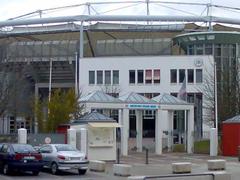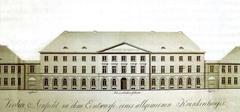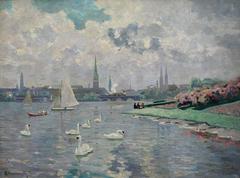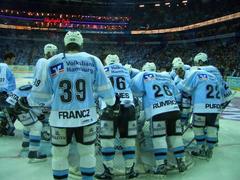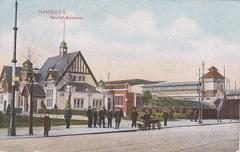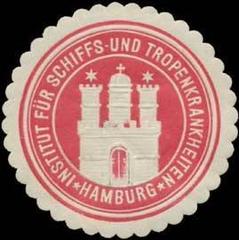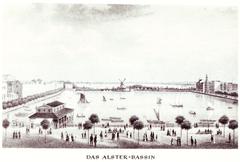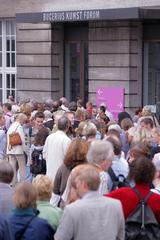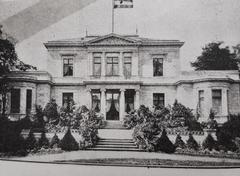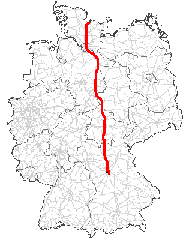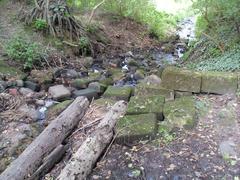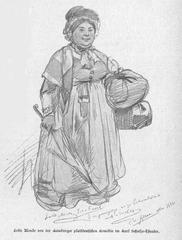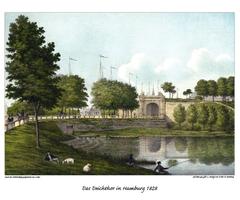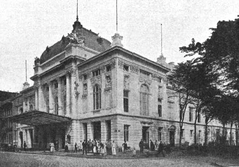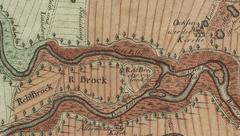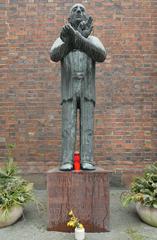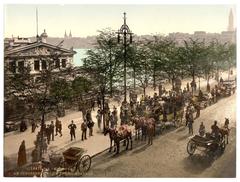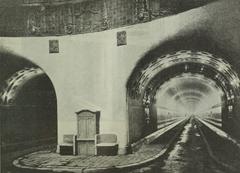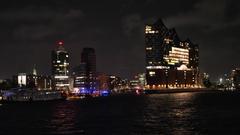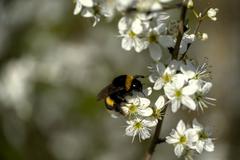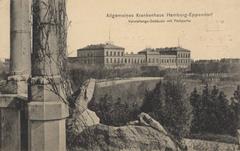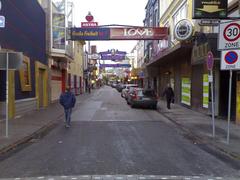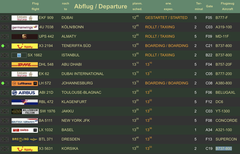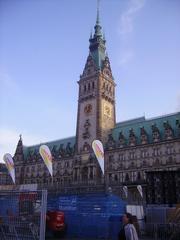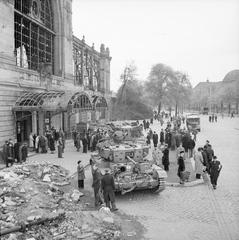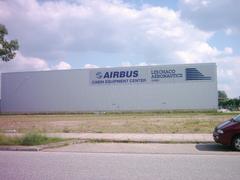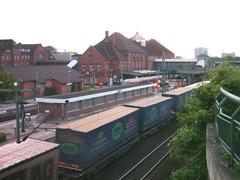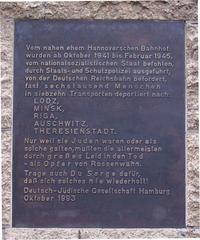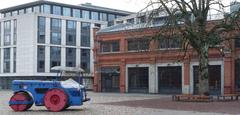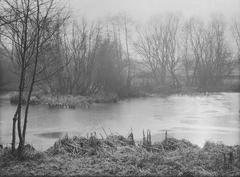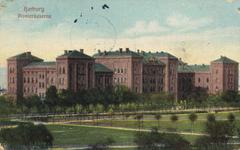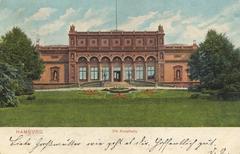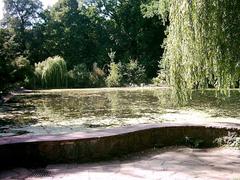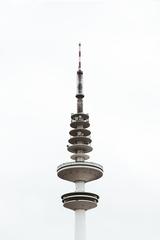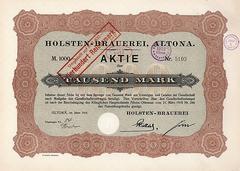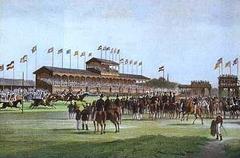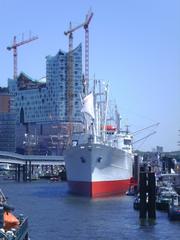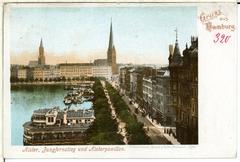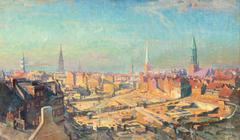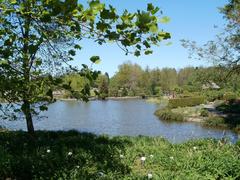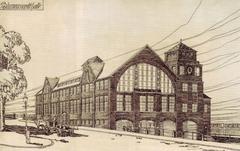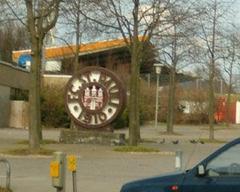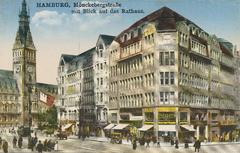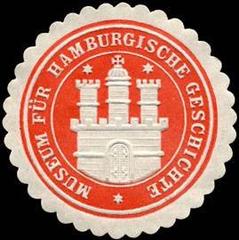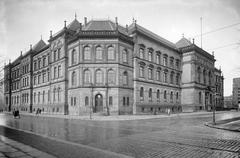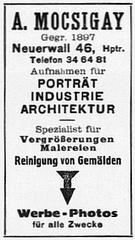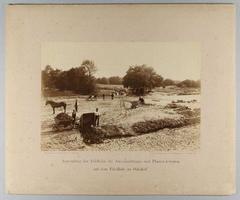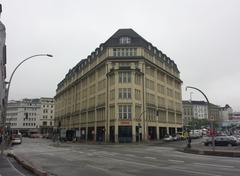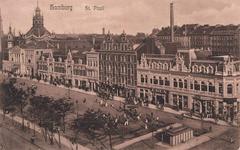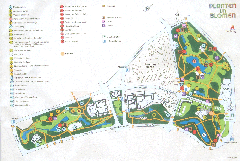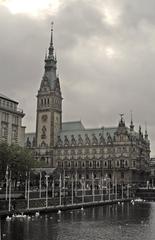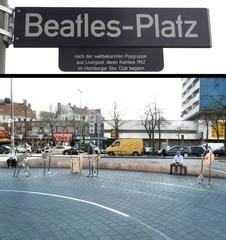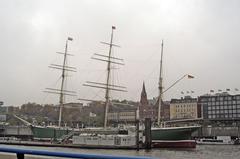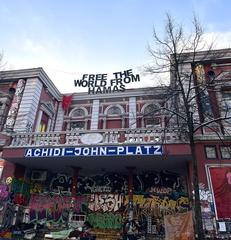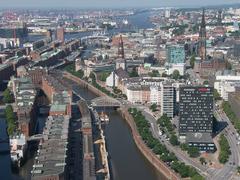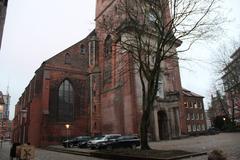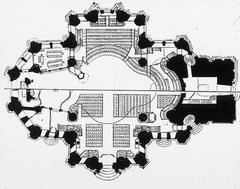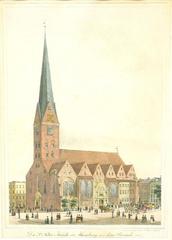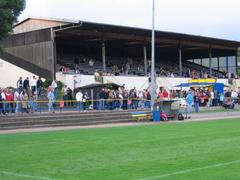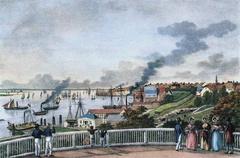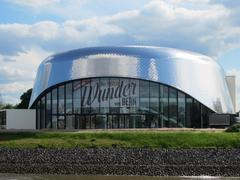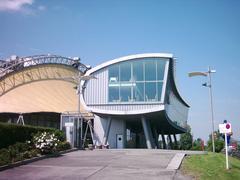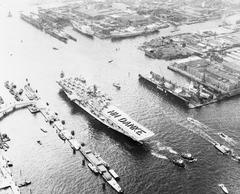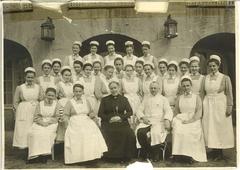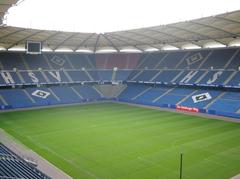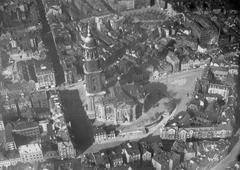Finkenwerder Fleet Hamburg: Visiting Hours, Tickets, and Travel Guide
Date: 04/07/2025
Introduction: Hamburg’s Maritime Jewel on the Elbe
Finkenwerder Fleet, set within the historic Finkenwerder district along the Elbe River, embodies the essence of Hamburg’s maritime legacy, industrial progress, and community spirit. What began as a marshy island protected by dikes has evolved through centuries of fishing, shipbuilding, and industrial transformation—culminating today in a vibrant district where historic canals, shipyards, and aviation innovation coexist. Whether you’re drawn by ship museums, Airbus’s modern assembly lines, or the warmth of local festivals, Finkenwerder offers an authentic Hamburg experience that bridges past and present (hamburg-business.com; abendblatt.de).
This guide delivers essential information on Finkenwerder Fleet’s history, attractions, visiting logistics, and insider tips—ensuring you make the most of your journey to one of Hamburg’s most captivating waterfront districts (timeout.com; hamburg-travel.com).
Table of Contents
- Origins and Early Development
- Industrialization and Maritime Significance
- Transformation into an Innovation & Aviation Hub
- Community, Culture, and Festivals
- Visiting Hours, Tickets, and Accessibility
- Getting There & Travel Tips
- Attractions and Experiences
- Practical FAQs
- Conclusion & Visitor Recommendations
- Sources
Origins and Early Development
Finkenwerder’s story is inseparable from Hamburg’s rise as a global port. Originally a marshland island in the Elbe, the area was gradually reclaimed and protected by dikes, evolving into a fishing and farming community. The creation of key waterways like Köhlfleet and Rüschkanal enabled the development of a robust local fleet, with up to 100 fishing vessels proudly bearing the “HF” (Hamburg-Finkenwerder) mark. These fleets became vital to Hamburg’s food supply and economic growth (hamburg-business.com).
As Hamburg’s port expanded, Finkenwerder’s strategic location and canal networks positioned it as a hub for transportation, shipbuilding, and trade.
Industrialization and Maritime Significance
The 19th and 20th centuries brought rapid industrialization. Shipyards like Feltz-Werft thrived, while yachtharbors and cutter ports supported both commerce and leisure boating (die-werft.events). The area’s fleets and canals connected seamlessly to the Elbe, facilitating goods movement and integrating Finkenwerder into Hamburg’s broader logistics network.
Infrastructure improvements—including port railways and the A7/A1 motorways—cemented Finkenwerder’s role as a critical maritime and industrial node (hamburg-business.com).
Transformation into an Innovation & Aviation Hub
Following WWII, Finkenwerder entered a new era as an aviation and technology center. The establishment of Airbus’s Finkenwerder site and affiliated research centers created Germany’s largest aviation cluster, employing more than 27,000 people and generating billions in annual revenue. Airbus’s presence fostered a dynamic innovation ecosystem, including the Center of Applied Aeronautical Research (ZAL) and the Finkenwerder Technology Centre (hamburg-business.com).
Modern development blends seamlessly with maritime heritage: historic buildings like the 1912 pilot house at Seemannshöft stand beside contemporary architectural projects, and startup initiatives thrive in the Finkenwerder Innovation Park.
Community, Culture, and Festivals
Despite industrial growth, Finkenwerder retains a distinct local identity rooted in seafaring tradition. Community festivals and cultural events highlight this heritage:
Maritime Heritage
- Landrath Küster Museum Ship: This beautifully restored 1888 deep-sea cutter serves as a floating museum, open April–October (Wed–Sun, 10 AM–5 PM; €5 adults, concessions available). It’s a testament to the area’s fishing legacy and a centerpiece for local celebrations.
- Finkenwerder Speeldeel: The local folk group preserves and performs traditional music and dance.
Festivals
- Schollenfest: Held annually in late May/early June, the Plaice Festival honors the “Scholle” fish with authentic regional food and folk performances, emphasizing community over commercialism (abendblatt.de).
- Karkmess: July’s year market celebrates the transition between fishing seasons with food, music, and artisan markets.
- Deichpartie: A biennial street festival, the Deichpartie invites visitors to workshops, open studios, historic port tours, and culinary delights (hamburg.com).
Arts & Memory
- Finkenwerder Geschichtswerkstatt: The community’s history workshop preserves local stories and WWII history, with exhibits and tours available by appointment (hamburg.de).
Volunteerism is central to festival organization and heritage preservation, reflecting Finkenwerder’s strong social cohesion.
Visiting Hours, Tickets, and Accessibility
General Access
- Finkenwerder Fleet waterfront: Open year-round, no entrance fee.
- Museum Ships, Event Venues, and Open-Air Pool: Seasonal hours, typically April–October for museum ships (10:00–17:00). Festivals have set dates; check official listings.
Tickets
- Fleet area: Free access.
- Museum ships, Airbus tours, and special events: Tickets required, often bookable online or onsite. Airbus factory tours must be reserved well in advance (hamburg-travel.com).
Accessibility
- Ferries, buses, and marinas: Largely wheelchair accessible. Some paths and older venues may have limitations—advance inquiries recommended.
- Guided tours: Available for Airbus and heritage sites; advance booking advised.
Getting There & Travel Tips
By Public Ferry
- HVV Ferry Line 62: Departs from Landungsbrücken, offers scenic Elbe views, and is included in standard HVV tickets (timeout.com). The ride doubles as a budget-friendly harbor tour.
By Bicycle
- Stadtrad Hamburg: City bike rentals offer an eco-friendly, flexible way to reach Finkenwerder, especially popular for exploring orchards and dike trails.
By Bus/Car
- HVV buses: Direct routes from Hamburg city center and Altona.
- Car: Parking available near marina/event venues; may be limited during festivals.
Insider Tips
- Cash: Smaller venues and eateries may not accept cards.
- Weather: Hamburg’s maritime climate is changeable—bring layers and rain protection.
- Language: English is widely spoken; Plattdeutsch dialect adds local flavor.
Attractions and Experiences
Airbus Finkenwerder Tours
- Guided tours: Observe aircraft assembly, interactive aviation exhibits, and VR experiences. Book well in advance; tours typically run weekdays (hamburg-travel.com).
- Viewing platform: Popular for planespotting, accessible daily.
Finkenwerder Yachthafen & Marina
- Modern facilities: Water/electricity at berths, clean amenities, and grilling on the club boat (predictwind.com).
- Waterfront walks: Scenic dike paths with panoramic Elbe views.
Parks & Nature
- Rüschpark and Nature Reserves: Expansive green spaces and birdwatching in Süderelbe and Westerweiden marshlands.
Historic & Cultural Landmarks
- Mahnmal U-Boot-Bunker Fink II: WWII submarine bunker memorial, with art installations and info panels.
- Gorch-Fock-Halle: 1930s architectural gem, now a sports and event hall.
Culinary Experiences
- Finkenwerder Scholle: Try the iconic plaice dish with bacon and onions at local restaurants and festivals.
- Apple products: Reflecting the area’s orchard heritage.
Seasonal & Family Activities
- Open-air swimming pool: May–September.
- Playgrounds, picnics, and community events: Family-friendly amenities throughout.
Frequently Asked Questions (FAQ)
Q: What are the Fleet’s general opening hours?
A: The waterfront is open year-round; museum ships and some attractions operate April–October, typically 10:00–17:00.
Q: How do I get Airbus tour tickets?
A: Book online via official tourism channels; reserve several weeks ahead (hamburg-travel.com).
Q: Is Finkenwerder accessible by ferry?
A: Yes—HVV Ferry Line 62 runs regularly from Landungsbrücken (timeout.com).
Q: Are festivals free to attend?
A: Most community festivals, including Schollenfest and Deichpartie, are free.
Q: Is the area suitable for visitors with disabilities?
A: Most main attractions are accessible, but check specific venues for details.
Conclusion & Visitor Recommendations
Finkenwerder Fleet exemplifies Hamburg’s unique blend of maritime history, industrial innovation, and community warmth. From historic vessels and aviation tours to lively festivals and tranquil riverside walks, the district offers a multifaceted experience. Plan ahead to secure guided tours and check event schedules. Embrace the opportunity to discover authentic Hamburg—where the Elbe’s tides shape not just the landscape, but the spirit of the city itself.
For up-to-date schedules, ticketing, and insider tips, download the Audiala app and follow official tourism resources. Your Finkenwerder adventure awaits!
